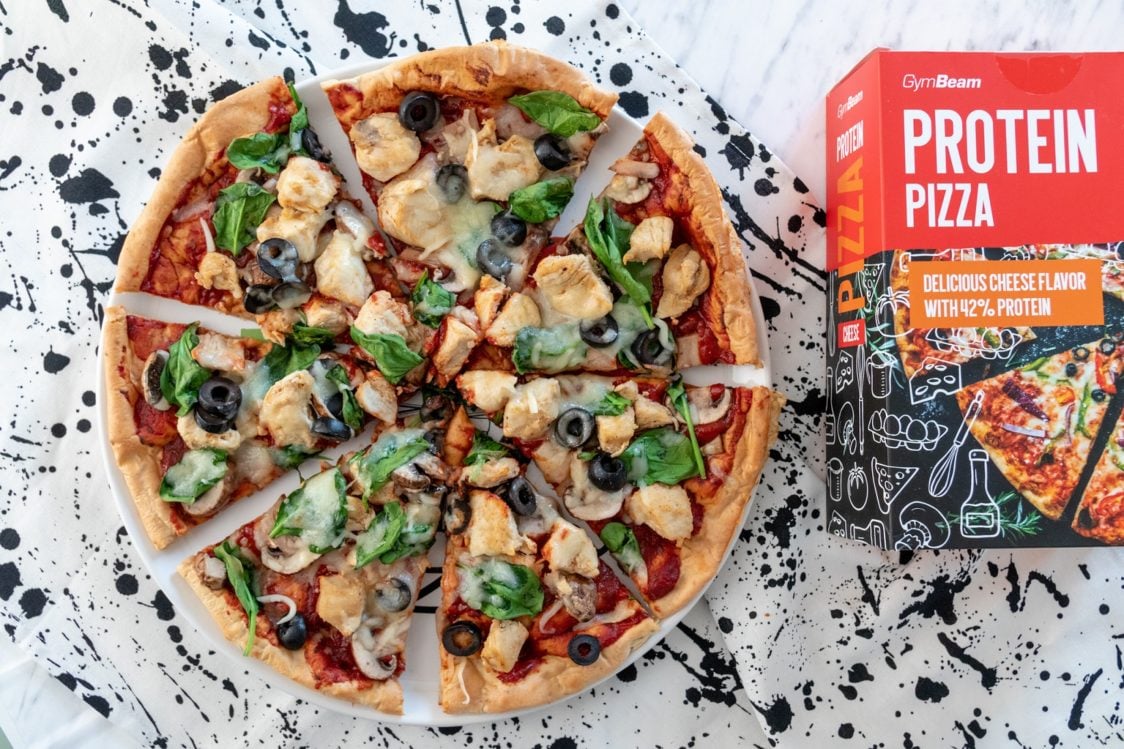Table of Contents
Does it happen that you are tempted by the hidden chocolate exactly during the afternoon coffee? Or do you get a sudden irresistible craving for chips, popcorn, or ice cream while watching some intense TV moments in the afternoon?
We can understand cravings as an intense, compulsive, or even abnormal desire to eat something tasty. Something tasty in this context means sweet, salty, or fatty food. Consumption of such foods or a combination results in the release of dopamine in particular, which in the short term brings pleasant feelings, such as joy, happiness, or momentary satisfaction and reassurance. Thanks to this, people can deal with periods of increased stress and emotional stress, bad mood, or calm down after conflict situations. [1]
Cravings can be caused by several factors, which can be classified under physiological and psychological influences. However, the surrounding environment also plays a role. What should you imagine under that? It can be your routine way from work. When you stop for a drink at a gas station or fast food, an afternoon walk around a bakery with irresistible croissants in the shop window, or your work or home environment, where you always have something available to satisfy your sudden cravings.
Did you know that compulsive cravings are partly influenced by gender? Compared to men, women experience on average twice as many cases of irresistible cravings, and they also have a taste for different kinds of food. Women experience sweet tooth more often, while men in most cases experience cravings for salty foods. This difference can be partly explained by PMS (premenstrual syndrome), where women are usually more prone to eat more sweet, fatty, and salty foods. For each woman, the preference of specific meals is individual. [2–5]

Can sweet or salty cravings be caused by a lack of micronutrients?

Surely, you have already heard about the theory that a lack of micronutrients may be the reason why we crave specific foods. And perhaps we use it as an excuse to justify snacking on a bar of chocolate. But is this theory really based on facts? The lack of magnesium may be the reason you crave chocolate, less iron may cause the need for meat, and the lack of calcium may be the cause of the excessive appetite for cheese. Yes, but most people have cravings for sweet, savoury, and fatty foods, although no one in the modern Western world suffers from a lack of sugar, salt, or fat.
According to this theory, shouldn’t people have a taste for fresh and minimally processed foods that are rich in micronutrients? Then wouldn’t be beans, porridge, peanut butter, or whole-grain pasta, which contain more magnesium than milk chocolate, far more suitable foods that we should like? Although this theory may be true in some aspects, unfortunately, it doesn’t explain the real reason for craving specific foods. [6]
If you think that you are perhaps the only one who is attacked by uncontrollable cravings, we will reassure you. According to scientists from the University of Sheffield, this affects up to 90% of the adult population. [7]
How to get rid of sweet tooth using 15 simple tips?
Most cases of compulsive cravings for something tasty are associated with the desire for sweets. Although the taste for sweet foods cannot be easily explained, we can find a number of factors that may be behind the reason for eating a bar of chocolate or dessert with your afternoon coffee every day. With the help of these steps, it is possible to easily work with factors and steadily reduce cravings.
1. Have sufficient and high-quality sleep every day
The importance of sleep is repeated over and over again, unfortunately, its importance in modern society is still underestimated, and the lack of sleep is thus a kind of the new social norm. And how exactly does lack of sleep affect appetite? In case of sleep deprivation, you can see that you have a somewhat greater appetite. How is it possible? This is due to a change in the concentration of the hormones of hunger and satiety (leptin and ghrelin). The leptin concentration decreases and the ghrelin level increases. This results in less satiety and increased appetite. It would be nice if in this way the organism pushed us to eat more vegetables or fruits, but it doesn’t. Instead, it urges us to eat sweet, savoury, and fatty foods. Cravings for a piece of cake in the café or a hamburger from the fast-food restaurant may be due to the fact that you haven’t slept well in a long time. [8–9]
Therefore, treat yourself to a quality sleep of about 7-9 hours every day. You will see that you will be far more productive, you will have more energy throughout the day, and you will take a step forward to tame your sweet tooth. [10]
You might be interested in these products:
2. Eat enough calories
You don’t even have to set a goal to lose weight to get far less energy than your body needs. Unfortunately, a busy lifestyle and poor eating habits is often enough. Insufficient energy intake can be one of the reasons why you are attacked by cravings during the day. If you want to lose weight, set your caloric deficit to 20% of your current, or ideally, optimal calorie intake.
Although some works show that caloric restriction suppresses appetite, it is a very individual matter. It is true that during the process of overall improvement of lifestyle and weight loss, cravings gradually disappear. However, this doesn’t exclude many people’s appetite for energy-rich foods in cases of severe lack of calorie intake in the diet. [11]
If you don’t know how much energy you should intake during a day, and how to build a healthy diet routine, read our article How to Calculate Energy and Macronutrient Intake for Weight Loss or Muscle Gain?

3. Avoid excessive activity and do not punish yourself for overeating by excessive exercising
A large volume of sports activities also requires greater energy intake, enough time to regenerate, and sleep. Let us not fool ourselves, sometimes it’s not easy to eat the optimal amount of calories. This is when the appetite for calorie-rich foods begins to appear. It can also be, for example, a matter of a few hours of hiking in the mountains, and not just a cumulative lack of energy due to excessive sports load. However, gym lovers will be pleased with the fact that this effect appears less in strength training compared to endurance sports. But that doesn’t mean you should sleep with a barbell, on the contrary. And do you know what’s even more interesting? That decrease in the level of physical activity is associated with an increase in sweet cravings. [12]
Other vices include a self-punishment in a form of excessive physical activity to compensate for eating extra calories. Unfortunately, this is a dead-end, or rather a vicious circle, from which you will not be able to get out in this way. What happens if you consume some extra calories with sweets? Nothing, you’ve just taken a few hundred extra calories and your life goes on. It’s not the end of the world, you won’t gain a lot of extra weight or fat. Take this as a fact, get back on track of living a healthy lifestyle, and next time try to think about what may be the cause for your sweet tooth. If you are interested in setting up a training plan correctly, read our article How To Build a Quality Workout Plan – Tips, Trainings, Most Common Mistakes.

4. Make healthy food choices and make sure you eat plenty of fruits and vegetables
What does it mean? Try to avoid fast foods, sweets, savoury snacks, fried foods, and foods with a high glycemic index, which can put your blood sugar level on a roller coaster ride, as well as your stomach. Because of sharp fluctuations in blood glucose (blood sugar levels), you will feel a rush of energy in your veins, which will disappear in a moment, and you will find yourself looking for something sweet again. And that’s exactly what you want to prevent. Overall, you get a greater feeling of energy during the day with a regular diet rich in all the essential nutrients, and not with coffee and a piece of chocolate six times a day.
Eat more fruits and vegetables. An adult should eat at least 400 grams of vegetables and 200 grams of fruit per day. How can vegetables and fruits help you fight your sweet tooth? They contain fiber, which has a beneficial effect on the feeling of satiety, so you won’t be craving for something else to eat right after you had your first snack.
You can follow the principles of a healthy plate, where at the end of the day, your all-day meal should resemble a healthy plate. What are the best sources of carbohydrates, proteins, and fats?
- Protein sources: meat, fish, seafood, dairy products and cheeses, eggs, legumes (peas, beans, all kinds of lentils, chickpeas, edamame), pseudo cereals (buckwheat, amaranth, quinoa), tofu, tempeh, nuts and seeds, vegetable meat substitutes, whey protein, plant-based protein, protein bars.
- Fat sources: nuts and seeds, oils, olives, avocado, butter and fat as a natural component of animal protein.
- Carbohydrates sources: whole-grain bread and cereals (oats, flour, rice, pasta and pastries), pseudo – cereals, potato and sweet potato, legumes, fruit and vegetables.
Don’t be afraid to eat even after an evening workout. If you are interested in this topic, read our article What to Eat Before and After a Workout to Reach Maximum Results.
5. Prefer complex carbohydrates and consume enough fiber
People often skip their lunch and dinner side dishes and start cooking lettuce in a thousand different ways because they believe it is good. What will they achieve by doing it? Overall, they dramatically reduce energy and protein intake. Because of this, during the day, and especially in the evening, they can struggle with the sweet and energy-rich foods cravings. What happens when, despite all the torment, people endure it and lose weight? As a rule, they return to their old eating habits in the time before salads and have an unpleasant yo-yo effect. Of course, there are exceptions to the rule. But isn’t it better to learn to eat according to your needs without trying to torture yourself with a salad diet?
Give the side dish in the form of complex carbohydrates a chance since it doesn’t spike up blood sugar levels so much due to the higher fiber content. Choose whole grains, pastries, pasta, couscous, bulgur, potato, sweet potato, oats, pseudo-cereals, legumes, vegetables, and fruits. Also remember that carbohydrates should be a part of a complex meal rich in proteins, fats, and fiber. In this way, you will achieve a slow gradual rise in blood sugar levels. What does it mean? That you’ll feel more satiated, and you won’t get cravings so often. [18]
An adult should consume about 30-35 grams of fiber per day. The recommendation of the German-speaking countries DACH says 16 g of fiber on 1.000 kcal for men and 12.5 g on 1.000 kcal for women. Among other things, fiber prolongs the feeling of satiety after a meal, so don’t forget about its sufficient intake as well.
6. Consume enough protein
Protein intake is vital in the fight against all cravings. It supports weight loss by increasing energy expenditure at rest and in sleep, suppressing appetite, and prolonging the feeling of satiety and satisfaction after a meal for a longer period of time. [13–15]
The basic protein intake for strength training athletes should be in the range of 1.4-2.0 grams of protein per kilogram of body weight. People who try to control their appetite can also benefit from a protein intake of about 1.4 g per kilogram of body weight. [13] If you want to expand the range of protein sources, read our article 20 Foods With Which You Can Easily Add Protein to Your Diet.

7. Eat regularly and don’t starve
It is good to have at least some system and order in your diet. If you are one of the people who do not eat much during the day, then you are most likely fighting the evening attacks on the refrigerator and the pantry, where you will eat almost everything that can see. Likewise, not eating after 6 PM is not the right way to success. If regular food intake is a problem for you, try food prepping. With meal prep, you will no longer go shopping while hungry and buy something to kill your craving.
At work, stock up on healthy treats in the form of fruit, protein bars, or a few Greek yogurts, along with granola in the fridge, ready for healthy snacking. To learn more about meal boxing, read our article How to Effectively Prepare and Pack Meals?
8. Drink enough water throughout the day
How much water to drink per day? You should drink about 30-45 ml of fluids per kilogram of body weight per day. For a 65-kilogram woman, this is at least 1,950 ml of fluids per day, and for an 80-kilogram man, it is at least 2,400 ml of fluids during the day. The drinking regime should consist mainly of water and unsweetened mineral water. You can also increase fluid intake, for example, with quality coffee or tea. Keep in mind that sweating and sports increase the need of fluid intake by at least the amount of what you have sweated out. [16]
If you have a sudden craving, first try to drink a large glass of water and wait for it to stop. For some people, dehydration can increase cravings and hunger. [17]
9. Reduce sugar consumption, and at least partially replace it with alternatives

According to WHO, we should reduce the consumption of added sugars from 10% CEP (total energy intake) to 5% CEP, which is about 31 grams for the average active adult. Unfortunately, sugar intake is much higher in the modern world today.
What is the best and healthiest way to replace sugar?
- Chicory syrup has a sweet taste thanks to the soluble fiber inulin. It is naturally contained in the chicory root from which the syrup is made. 100 grams of chicory syrup contains only 5 g of sugar and 160 kcal. In addition, it reaches about half the sweetness of sugar.
- Erythritol is a calorie-free sweetener, which is considered to be one of the best alternatives to classic sugar. Its has 70% of the sweetness of sugar (sucrose). You can use it for baking, coffee, tea, or porridge. In nature, erythritol is found in some fruits and vegetables.
- Xylitol is known as birch sugar, which is also commonly found in nature in some fruits and vegetables. Its sweetness is comparable to sugar and contains about 2.4 kcal per gram. Xylitol is used for baking or to sweeten popular drinks and dishes.
10. Manage stress and don’t let it control you
Everyone reacts to stressful situations a little differently. Unfortunately, a wast majority of people drive away stress with sweet food, which will only temporarily bring satisfaction and delightful feelings, and then we are back to reality. Long-term stress increases the level of the stress hormone cortisol, which is associated with a greater sweet and unhealthy foods cravings. [19]
Before you decide to “solve” a stressful situation with a bar of chocolate, try a few simple tricks that will help you manage stress without unnecessary calories.
- Do regular sports and often go out to nature. Sport is a natural way to deal with stress and boost your health.
- Give meditation and mindfulness a chance. Under the term mindfulness, we can understand the conscious targeting of attention in the present moment without judgment. Like meditation, mindfulness focuses on the breath and by observing one’s thoughts it can reduce stress or help manage problems more effectively. You can also use one of the modern meditation apps, which will successfully guide you through a session. [20]
- You can also try out cold water therapy, sauna or any activity that will bring you joy. For example, when was the last time you read a book?
To learn more about stress reduction methods, read our article Why is Stress Dangerous and How to Reduce It?
11. Don’t eat out of boredom
When you get bored, you go to the kitchen more often to find something to eat. Surely you know this, just try to see for yourself how many times a day it happens to you that you are thoughtlessly looking for something sweet. When you get a taste for sweets, start with healthier alternatives. What can you eat instead of chocolate? A piece of your favourite fruit with a large glass of water and wait a while to see if your appetite will still bother you.
Don’t give boredom a chance and try to find the lost love for an old hobby or think about what creative activity you would like to learn. You can also take advantage of courses from a wide range of online learning platforms. If you are struggling with munching and want to get rid of it, read our article How Is Snacking Holding You Back From Losing Weight? 11 Easy Ways To Get Your Diet Under Control

12. Hide tempting food
What you don’t have or don’t see at home, you won’t eat. This is also how another piece of advice on how to fight sweets could sound. Put fruits, vegetables, canned food, or supplies of pasta or legumes to the most visible places, ideally at the level of your eyes. When you stop buying sweets, you will create a home environment that will play in your favour, not against you. [21]
13. Identify your eating habits, emotions, and situations in which you reach for sweet
Do you ever get a taste for something sweet when you make afternoon coffee or walk around the bakery? Maybe it’s your previous eating habits that you’ve developed during your life. When someone annoys you, do you reach for something sweet? Then first the emotions and their eating will be responsible for it.
- Bad eating habits and vices. Try to identify situations where you only eat out of habit. If you keep a diary in which you write down situations when you crave something sweet, you can more easily identify you bad eating habits, and you can start working on eliminating them.
- Emotions and mood. A bad mood is associated with a craving for snacks, which can improve mood only in the short term. Again, these are salty, sweet, and fatty foods. We can say the same about situations where someone annoys, betrays, or makes you sad. Again, you can manage it more easily with the help of a diary. And isn’t it better to try to cope with emotions by doing some sport? [22]
14. If you are a woman, try managing your PMS
During the last week of the menstrual cycle, the hormones play games with a woman’s body, and because of this, you may also feel more hungry, irritable, and craving sweet, salty, and fatty foods. If you have a sweet tooth during PMS, try eating more fruit, a protein bar, or add a teaspoon of your favourite nut butter to your porridge. If you do not unnecessarily limit yourself by eating salads only or avoiding side dishes, you can win over PMS, or at least alleviate its manifestations. [24]
15. Eat healthy snacks
As we have already said, chicory syrup, erythritol, or xylitol, for example, can help reduce sugar consumption.
How to satisfy the sweet tooth in a healthier way?
- Protein pudding with fruit replenishes protein and satisfies the sweet taste. All you need is regular pudding, milk, and a scoop of protein.
- Frozen grapes are a great way to tame sweet tooth. It is refreshing and tastes great.
- Protein bar or a cookie can help you get rid of the craving for sweets at work, at home, or after training.
- Protein ice cream or a popsicleare a far better alternative to ice cream containing cream and many more calories.
- Greek yogurt with fruit and chicory or calorie-free syrup will delight your taste buds and makes it a better and healthier way to fight the sweet tooth.
- Cottage or white sweet yogurt. How to prepare it? Slice your favourite fruit, add a teaspoon of peanut butter, a small handful of nuts, and a sweet cottage is ready to be served.

What to remember?
A number of factors are responsible for cravings, yet the lack of micronutrients isn’t always the case. You don’t have to start strictly following all the tips we gave you today. It will be enough if you could focus on one area of your lifestyle every week. First try sleeping for at least 7 hours a day for one week, add enough protein in each meal the next week, and continue, for example, with a complete remake of your daily menu. Not everything goes right from the start, and you need to be patient and consistent. And do you know what is a great side effect of lifestyle recovery? You will probably be able to lose weight without having to try hard.
Do you have a crazy sweet tooth? Share your tips and advice on how to get it under control in the comments. If you liked the article, support it by sharing, so that your friends can get rid of the sweet cravings too.
[1] Gibson, E. L. – Emotional influences on food choice: Sensory, physiological and psychological pathways. – https://doi.org/10.1016/j.physbeh.2006.01.024
[2] Lafay, L., Thomas, F., Mennen, L., Charles, M. A., Eschwege, E., Borys, J. M., Basdevant, A., & Fleurbaix Laventie Ville Santé Study Group. – Gender differences in the relation between food cravings and mood in an adult community: Results from the fleurbaix laventie ville santé study. – https://doi.org/10.1002/1098-108x(200103)29:2<195::aid-eat1009>3.0.co;2-n
[3] Imperatori, C., Innamorati, M., Tamburello, S., Continisio, M., Contardi, A., Tamburello, A., & Fabbricatore, M. – Gender differences in food craving among overweight and obese patients attending low energy diet therapy: A matched case-control study. – https://doi.org/10.1007/s40519-013-0054-7
[4] Zellner, D. A., Garriga-Trillo, A., Rohm, E., Centeno, S., & Parker, S. – Food liking and craving: A cross-cultural approach. – https://doi.org/10.1006/appe.1999.0234
[5] Weingarten, H. P., & Elston, D. – Food cravings in a college population. – https://doi.org/10.1016/0195-6663(91)90019-o
[6] Drewnowski, A., & Bellisle, F. – Is sweetness addictive? – https://doi.org/10.1111/j.1467-3010.2007.00604.x
[7] Abdella, H. M., El Farssi, H. O., Broom, D. R., Hadden, D. A., & Dalton, C. F. – Eating Behaviours and Food Cravings; Influence of Age, Sex, BMI and FTO Genotype. – https://doi.org/10.3390/nu11020377
[8] Dashti, H. S., Scheer, F. A., Jacques, P. F., Lamon-Fava, S., & Ordovás, J. M. – Short sleep duration and dietary intake: Epidemiologic evidence, mechanisms, and health – https://doi.org/10.3945/an.115.008623
[9] Markwald, R. R., Melanson, E. L., Smith, M. R., Higgins, J., Perreault, L., Eckel, R. H., & Wright, K. P. – Impact of insufficient sleep on total daily energy expenditure, food intake, and weight gain. – https://doi.org/10.1073/pnas.1216951110
[10] Hirshkowitz, M., Whiton, K., Albert, S. M., Alessi, C., Bruni, O., DonCarlos, L., Hazen, N., Herman, J., Katz, E. S., Kheirandish-Gozal, L., Neubauer, D. N., O’Donnell, A. E., Ohayon, M., Peever, J., Rawding, R., Sachdeva, R. C., Setters, B., Vitiello, M. V., Ware, J. C., & Adams Hillard, P. J. – National Sleep Foundation’s sleep time duration recommendations: Methodology and results summary. – https://doi.org/10.1016/j.sleh.2014.12.010
[11] Kahathuduwa, C. N., Binks, M., Martin, C. K., & Dawson, J. A. – Extended calorie restriction suppresses overall and specific food cravings: A systematic review and a meta-analysis. – https://doi.org/10.1111/obr.12566
[12] Myers, C. A., Martin, C. K., & Apolzan, J. W. – Food Cravings and Body Weight: A Conditioning Response.– https://doi.org/10.1097/MED.0000000000000434
[13] Jäger, R., Kerksick, C. M., Campbell, B. I., Cribb, P. J., Wells, S. D., Skwiat, T. M., Purpura, M., Ziegenfuss, T. N., Ferrando, A. A., Arent, S. M., Smith-Ryan, A. E., Stout, J. R., Arciero, P. J., Ormsbee, M. J., Taylor, L. W., Wilborn, C. D., Kalman, D. S., Kreider, R. B., Willoughby, D. S., … Antonio, J. – International Society of Sports Nutrition Position Stand: Protein and exercise. – https://doi.org/10.1186/s12970-017-0177-8
[14] Gosby, A. K., Conigrave, A. D., Raubenheimer, D., & Simpson, S. J. – Protein leverage and energy intake. – https://doi.org/10.1111/obr.12131
[15] Westerterp-Plantenga, M. S., Lemmens, S. G., & Westerterp, K. R. – Dietary protein – its role in satiety, energetics, weight loss and health. – https://doi.org/10.1017/S0007114512002589
[16] Scientific Opinion on Dietary Reference Values for water. – EFSA Journal. – https://doi.org/10.2903/j.efsa.2010.1459
[17] Muckelbauer, R., Sarganas, G., Grüneis, A., & Müller-Nordhorn, J. – Association between water consumption and body weight outcomes: A systematic review. – https://doi.org/10.3945/ajcn.112.055061
[18] Howarth, N. C., Saltzman, E., & Roberts, S. B. – Dietary Fiber and Weight Regulation. – https://doi.org/10.1111/j.1753-4887.2001.tb07001.x
[19] Chao, A. M., Jastreboff, A. M., White, M. A., Grilo, C. M., & Sinha, R. – Stress, cortisol, and other appetite-related hormones: Prospective prediction of 6-month changes in food cravings and weight. – https://doi.org/10.1002/oby.21790
[20] Janssen, M., Heerkens, Y., Kuijer, W., van der Heijden, B., & Engels, J. – Effects of Mindfulness-Based Stress Reduction on employees’ mental health: A systematic review. – https://doi.org/10.1371/journal.pone.0191332
[21] Wansink, B., Painter, J. E., & Lee, Y.-K. – The office candy dish: Proximity’s influence on estimated and actual consumption – https://www.nature.com/articles/0803217
[22] Rodríguez-Martín, B. C., & Meule, A. – Food craving: New contributions on its assessment, moderators, and consequences. – https://doi.org/10.3389/fpsyg.2015.00021
[23] Mcdonald, L. – THE WOMEN’S BOOK


Add a comment